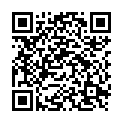|
|
|
| Module code: E415 |
|
|
2V (2 hours per week) |
|
2 |
| Semester: 4 |
| Mandatory course: yes |
Language of instruction:
German |
Assessment:
Written exam after 4th semester
[updated 11.03.2010]
|
E415 (P211-0207) Electrical Engineering, Bachelor, ASPO 01.10.2005
, semester 4, mandatory course
|
30 class hours (= 22.5 clock hours) over a 15-week period.
The total student study time is 60 hours (equivalent to 2 ECTS credits).
There are therefore 37.5 hours available for class preparation and follow-up work and exam preparation.
|
Recommended prerequisites (modules):
E104 Fundamentals of Electrical Engineering I
E203 Fundamentals of Electrical Engineering II
[updated 11.03.2010]
|
Recommended as prerequisite for:
|
Module coordinator:
Prof. Dr. Albrecht Kunz |
Lecturer:
Prof. Dr. Albrecht Kunz
[updated 11.03.2010]
|
Learning outcomes:
This module is designed to teach students about the systems, concepts and processes used in modern mobile communications. Having acquired an understanding of existing systems, students will be able to understand and assess the latest developments in this field.
[updated 11.03.2010]
|
Module content:
1.Introduction
2.Concepts in mobile communications
3.Telecommunications systems
4.Satellite systems
5.Radio-based networks
[updated 11.03.2010]
|
Teaching methods/Media:
Overhead transparencies, lecture notes, PC demonstrations, video projector
[updated 11.03.2010]
|
Recommended or required reading:
Holma, Harri: WCDMA for UMTS, John Wiley & Sons,
Korhonen, Juha: Introduction to 3G mobile communications, Artech House Publishers,
Pelton, Joseph N.: The basics of satellite communications, International Engineering Consortium,
Swan, Peter A.: Global Mobile Satellite Systems, Kluwer Academic Publishers,
Steele, Raymond: Mobile Radio Communications, John Wiley & Sons,
Schiller, Jochen: Mobile Communications, 2. Edition, Addison Wesley,
Jondral, Friedrich: Nachrichtensysteme, J. Schlembach Fachverlag,
Pehl, Erich: Digitale und analoge Nachrichtenübertragung, Hüthig-Verlag,
Werner, Martin: Nachrichtentechnik, Vieweg,
Proakis, Digital Communications, 4. Edition, McGraw-Hill.
[updated 11.03.2010]
|


